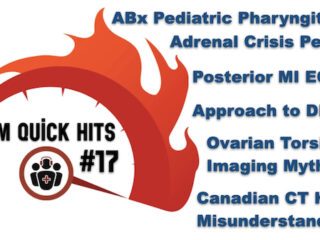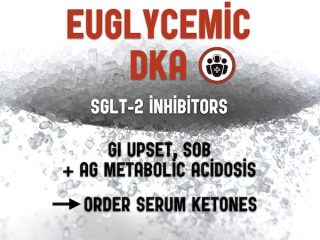Ep 147 HHS Recognition and ED Management
In this podcast, Part 2 of our diabetic emergencies series with Melanie Baimel, Bourke Tillmann and Leeor Sommer, we dive into the recognition and ED management of Hyperglycemic Hyperosmolar State (HHS). We answer questions such as: how does one differentiate DKA from HHS clinically? How do patients with HHS become hyperglycemic, dry and altered? Why is finding and treating the cause or trigger of HHS so important in the ED? How does fluid management differ in HHS from DKA? and many more...





